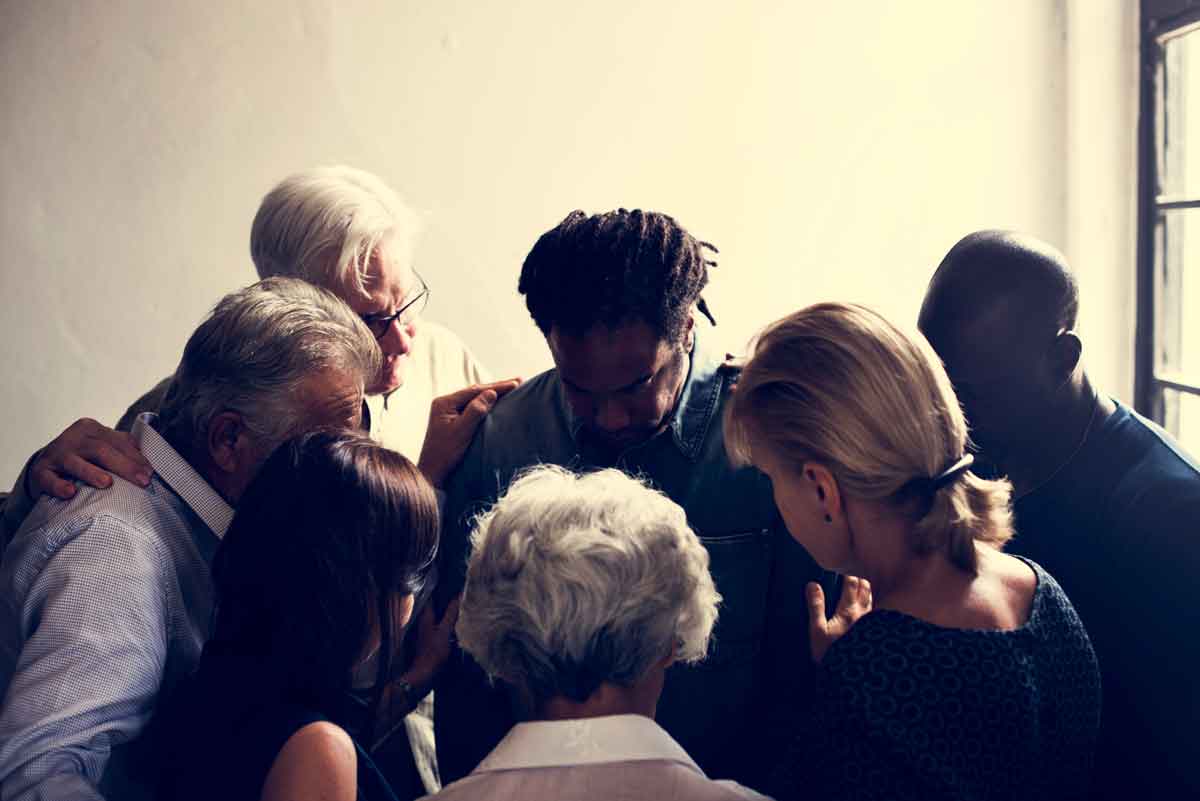The wound still feels fresh.
Someone you trusted has hurt you deeply.
Perhaps they’ve apologized, perhaps not.
Either way, the pain lingers like a shadow that follows you everywhere.
You’ve heard you should forgive, but how?
When the hurt runs bone-deep, forgiveness can feel impossible—even unfair.
We understand this struggle.
The journey to forgiveness isn’t a simple one-time decision but a path we walk daily.
It’s not about forgetting or excusing what happened.
It’s about finding freedom from the prison of resentment.
Do you have more questions?
Did you have more questions or are you wanting to grow in your faith?
Understanding True Forgiveness
Forgiveness is often misunderstood.
It doesn’t mean what happened was okay.
It doesn’t require reconciliation with unsafe people.
It doesn’t happen instantly.
Forgiveness is a decision to release the debt someone owes you—a debt they may never be able to repay anyway.
Jesus taught this principle in the Lord’s Prayer: “Forgive us our debts, as we also have forgiven our debtors” (Matthew 6:12).
We’re asking God to forgive our debts while committing to forgive others.
Think of forgiveness as unlocking a door—not for the offender’s freedom, but for yours.
The person who hurt you may never know you’ve forgiven them.
But you’ll feel the chains of bitterness begin to loosen.
The Process of Forgiveness
Forgiveness begins with honesty.
Acknowledge the full extent of your hurt before God.
Like David in the Psalms, bring your raw emotions to Him: “Search me, God, and know my heart” (Psalm 139:23).
Name the specific wounds and their impact on your life.
This isn’t dwelling on the past—it’s acknowledging reality.
Next, recognize that forgiveness is a choice, not a feeling.
Your emotions may take time to catch up with your decision.
That’s normal.
Begin with a simple prayer: “Lord, I choose to forgive (name) for (specific action), even though I still feel hurt.”
Remember that forgiveness often happens in layers.
Like peeling an onion, we may need to forgive the same offense multiple times as deeper hurts surface.
This doesn’t mean the first attempt wasn’t genuine.
It means forgiveness is a journey, not a destination.
Need Prayer?
Life can be overwhelming, which is why many turn to prayer—a simple conversation with God—for strength, hope, and peace. The Bible reminds us that prayer is powerful and meaningful. Whatever you're facing, we’d be honored to pray for you or your loved ones. You're not alone, and we’re here to partner with you in prayer.

Practical Steps Toward Forgiveness
Start by separating the person from their actions.
See them as God sees them—a flawed human being in need of grace, just like you.
“For all have sinned and fall short of the glory of God” (Romans 3:23).
This doesn’t excuse their behavior but helps release your judgment.
Write a forgiveness letter you’ll never send.
Express your feelings honestly, acknowledge how you’ve been changed by the hurt, and state your choice to forgive.
Then destroy the letter as a symbolic release.
Replace bitter thoughts with prayers for the person who hurt you.
Jesus taught, “Love your enemies and pray for those who persecute you” (Matthew 5:44).
This doesn’t mean praying they’ll “get what they deserve.”
It means asking God to work in their lives as He’s working in yours.
Finally, be patient with yourself in this process.
Healing has its own timeline.
Some days you’ll feel you’ve moved forward; other days the hurt will feel fresh again.
Keep choosing forgiveness in those moments.
Walking in Freedom
True forgiveness leads to freedom.
Not freedom from consequences or boundaries, but freedom from being controlled by the past.
Paul reminds us, “It is for freedom that Christ has set us free” (Galatians 5:1).
Look for small signs of this freedom.
Notice when you can think of the person without the same intensity of emotion.
Celebrate when you no longer feel the need to tell your hurt story to everyone.
Recognize when you can wish the person well without resentment.
These are milestones on your forgiveness journey.
Find Community
We all have a deep need for connection, but building meaningful relationships isn’t always easy. That’s why we’ve created welcoming spaces where you can meet new people and build authentic community. No matter where you are in your faith journey, you’re invited to explore, grow, and belong here.

Frequently Asked Questions
Does forgiving mean I have to reconcile with the person who hurt me?
No. Forgiveness is something you do in your heart; reconciliation requires both parties. Reconciliation depends on genuine repentance and changed behavior from the other person. Sometimes wisdom requires maintaining distance while still forgiving.
What if they keep hurting me? Do I have to keep forgiving?
Jesus told Peter to forgive “seventy-seven times” (Matthew 18:22), showing forgiveness has no numeric limit. However, continuing to forgive doesn’t mean continuing to accept harmful behavior. Establish appropriate boundaries while maintaining a forgiving heart.
How do I know if I’ve truly forgiven someone?
You’ll know forgiveness is taking root when you no longer feel the need for revenge, when you can pray for the person’s well-being, and when the hurt loses its power over your thoughts and emotions. The memory remains, but the sting gradually fades.
What if I’m struggling to forgive myself?
Self-forgiveness often proves most difficult. Remember that God’s forgiveness is complete: “As far as the east is from the west, so far has he removed our transgressions from us” (Psalm 103:12). Accept the grace He offers, which is always greater than your mistakes.
Your Next Step Toward Healing
The journey of forgiveness isn’t one we’re meant to walk alone.
Our church offers a six-week “Freedom Through Forgiveness” group that provides biblical guidance and supportive community.
Whether your wound is fresh or decades old, it’s never too late to begin the healing process.
Remember, forgiveness isn’t a single moment but a daily choice.
Each time you choose forgiveness, you take another step toward freedom.
Each time you release someone else’s debt, you experience God’s grace anew.
The person who hurt you took something from you once.
Don’t let unforgiveness continue to take your peace day after day.
The path to healing begins with a single step.
Let’s take that step—together.
Get Connected
If you want to learn more, have questions, need prayer, or want to get in touch with our church — simply fill out the form below to connect!
"*" indicates required fields


